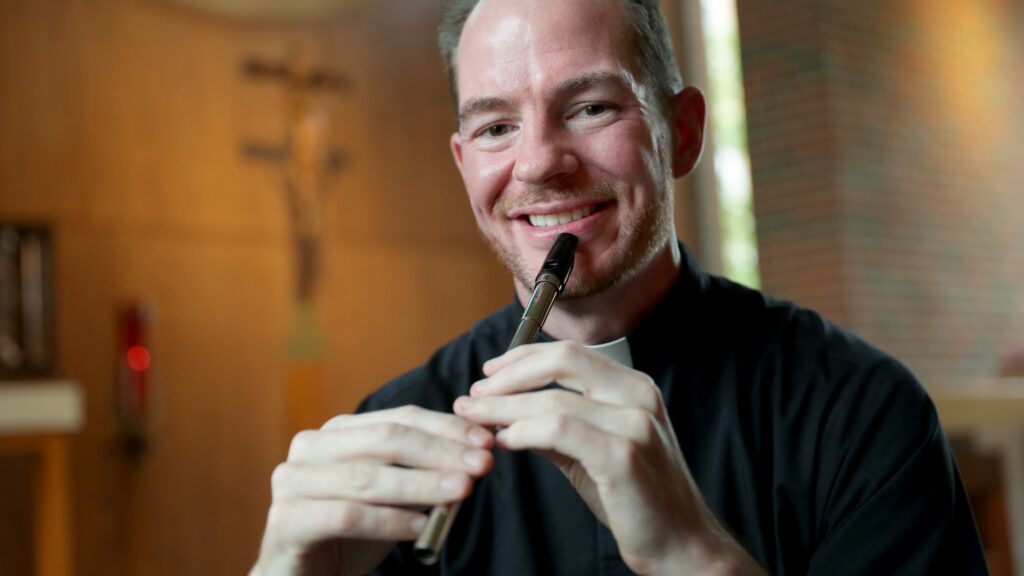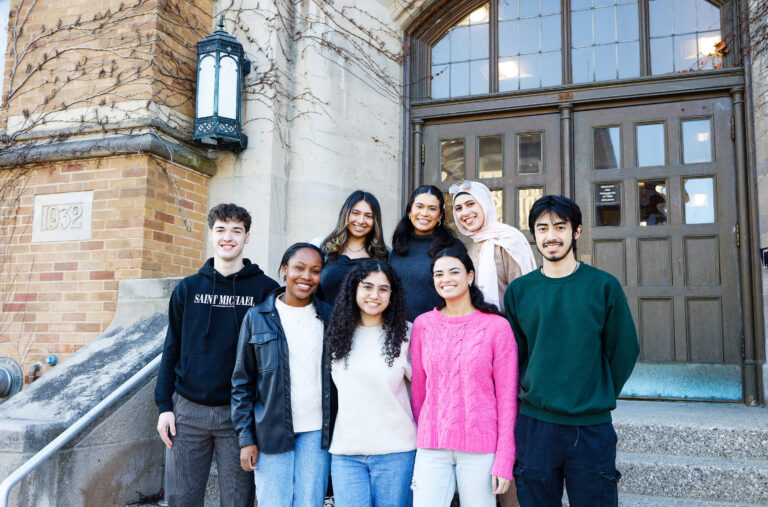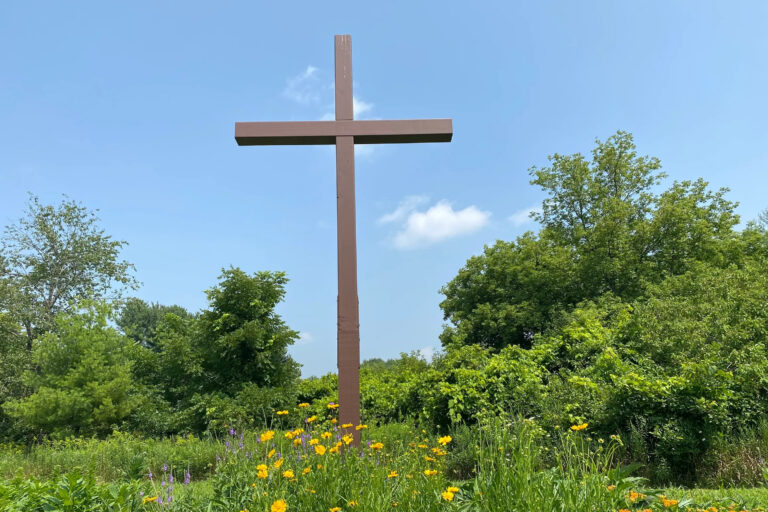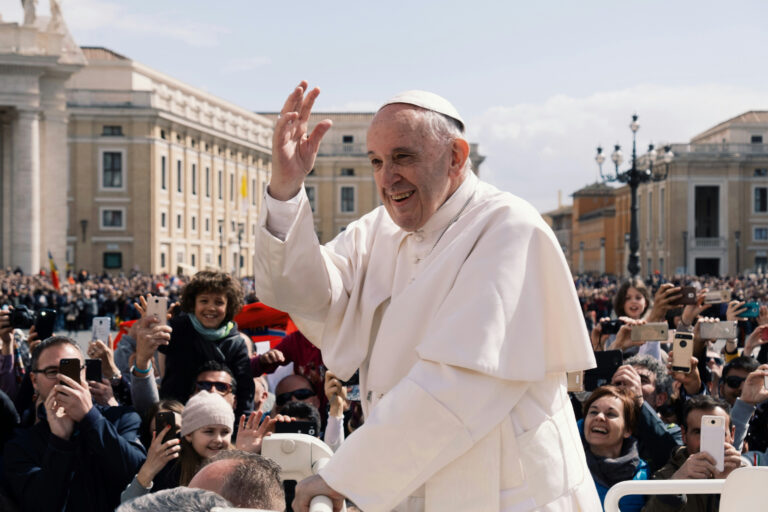
By Shelby Williamson, senior communication specialist in the Office of Marketing and Communication
Rev. Ryan Duns, S.J., is an assistant professor and the assistant chair of theology in the Klingler College of Arts and Sciences. Working at the intersection of philosophy and systematic theology, Father Duns has published several works on renowned Jesuit theologians and philosophers. He also has championed a no-screen, or technology-free, policy for his courses where it can be applied to help promote mindfulness among his students.
In a Q&A, Father Duns gives insight on how to keep the faith during the trying times presented by the spread of the coronavirus:
The coronavirus has forced most people into social isolation and remote work. It is a reality that can be very stressful and confusing. What sort of advice can you offer about keeping the faith during these tough times?
During this time of quarantine, with our lives upended and facing an uncertain future, it may seem difficult, if not impossible, to “keep the faith.” For those whose routines have been thrown off, there are certain practices one might adopt. If there is a dark grace to this experience, it is that this has all begun during Lent — the liturgical season that invites us to prepare our hearts and lives for Easter Sunday. Although this is not the Lent I desired, it is the Lent in which I find myself.
Members of my family have begun to pray the rosary together each night via Skype. Denied the communion we have for so long taken for granted, this is a way of staying in touch with those we love. Personally, I have found establishing a prayer schedule to be very helpful. The Irish Jesuits’ Pray As You Go has been a great help in keeping me connected to the prayer of the Church.
Finally, I have found myself stealing a few moments of silence here and there, and simply praying for people who right now feel as if they have been abandoned. My prayer is that through God’s grace they feel they are not alone or abandoned and that there are people out there who love them and are praying for them. I’m not praying for anyone in particular, but simply for anyone who is in need at this moment.
Not long ago, you wrote a popular Medium piece about the importance of unplugging from our devices and being present. You even implemented a no-screen policy for your classes, where applicable. Now more than ever, as we work remotely, we must utilize our computers, cellphones, etc. How can we maintain a balance during these tech focused times? Can we still achieve peace and mindfulness?
I’m finding myself behind my computer screen a lot more these days — especially as I try to be present to my students, colleagues and friends. This increase in screen time has led, not surprisingly, to an increase in “digital diversions,” as I check the news and peruse social media. I find it necessary to take breaks, walk away from the computer and do other things. Sometimes I read a book, other times I close my eyes and steal a few moments for prayer.
We need to remain mindful of life beyond our screens. It’s easy to grow despondent over the dire straits we are in and the seduction of the 24-hour news cycle. I try to keep abreast of the news, but it is important to me not to allow myself to get sucked into the maelstrom. Breaking up my workday with periods of quiet reflection, service to my Jesuit brothers or reaching out to my family has been incredibly important.
To be honest, I am most grateful for technology. I was able to wish my dad a happy birthday, see my nephews on St. Patrick’s Day, and I’m in contact with many of my friends. Being in communication with them has given me a social outlet and has provided material for my prayer. When I say, “I’m going to pray for you,” I now have no excuse not to do it. Even though I’m busy with the demands of teaching and community life, I find myself with extra minutes that I can use.
What Bible verse really speaks to you during this time, and why? How can people apply it to their lives now and going forward?
I have turned a few times to Luke 24:13-35, the “Road to Emmaus” narrative. For me, this story captures the dual moments of the spiritual life: breakdown and breakthrough. Despondent after Jesus’ crucifixion and death, two disciples set out toward Emmaus. As they walk, a stranger falls into step with them. Although they have the sun’s light, they cannot see that this is Jesus in their midst. They are so caught up in their expectations that they can’t recognize him. Jesus patiently begins to reinterpret the Scriptures for them; he, as it were, “flips the script” and they begin to sense that there’s a bigger story unfolding than they realized. As the day draws to a close, the uncomprehending disciples say, “Stay with us, for it is nearly evening and the day is almost over.” As the day’s light declines and night falls, the disciples finally see Jesus in their midst; they discover his real presence in the breaking of the bread.
The breakdown of their plans and expectations appeared, initially, to throw everything off balance. The Lord has a way of breaking in upon us and catching us off guard. As the disciples learned, so do I desire to learn. As the semester breaks down and my plans are thrown off balance, I ask for the grace to recognize the Lord wherever he appears. This passage reminds me to stay awake and alert and to remain vigilant.
During social distancing, are there ways we can still help our neighbors?
Years ago, I adopted the practice of praying with my student roster. I pray for each of my students by name every morning and then, to the best of my ability, try to make my concern for them known during our interactions. Sometimes this is with a knowing smile, or a joke, or teasing banter. I want them to know they are known and loved by someone.
Before we fixate on taking stock of our toilet paper and Ramen, we need to take stock of the people who may fall through the cracks. We may not be able to visit friends and family, but we can certainly check in with them and let them know they are not forgotten. If fear and anxiety divide and isolate us, we can combat it with prayer and the practice of virtual presence. I may not be able to bring a bottle of wine to my friend, but I can call her to let her know I love her and I’m thinking of her.
Is there a spiritual lesson to be learned through all that is happening in the world related to coronavirus?
If there’s a spiritual lesson to take away, it may be an opportunity to learn not to take others for granted and to regard them as granted. In this time of enforced fasting, we are learning what we can and cannot do without. We are being forced to confront our deepest hungers and ask what will truly satisfy our longings. This may be a time to look at all the superficial and trivial realities we distract ourselves with and, resolving to purge ourselves of these, consider who we cannot do without.
Churchgoers can, I suspect, fall prey to this “taking for granted.” Catholics believe we receive the body and blood of Christ at Mass. However, we often treat the whole affair like take-out – grab and go, dine and dash. This time of fasting may re-awaken our hunger and rekindle our appreciation for our parish communities and for the Lord who offers himself so freely to us.
Do you have any advice on how people can best return to “normal” life once things settle?
I hope we never go back to “normal,” if normal means we forget the delicacy and preciousness of human life. If “normal” means we go back to old patterns of disregarding those around us and taking others for granted, then we will have learned nothing. Make no mistake: I don’t think God “gave” us this as some sort of test. I do think, though, in the collapse of our old ways, we can find God at work in the world calling us to a healing of body and mind as we examine our lives.
In the breakdown of the old ways, as we grapple with loss and a changing world, we may discern God’s unsettling presence. If our quarantine has stirred our longing for communion, perhaps this can reshape how we consider what it means to be the body of Christ.


